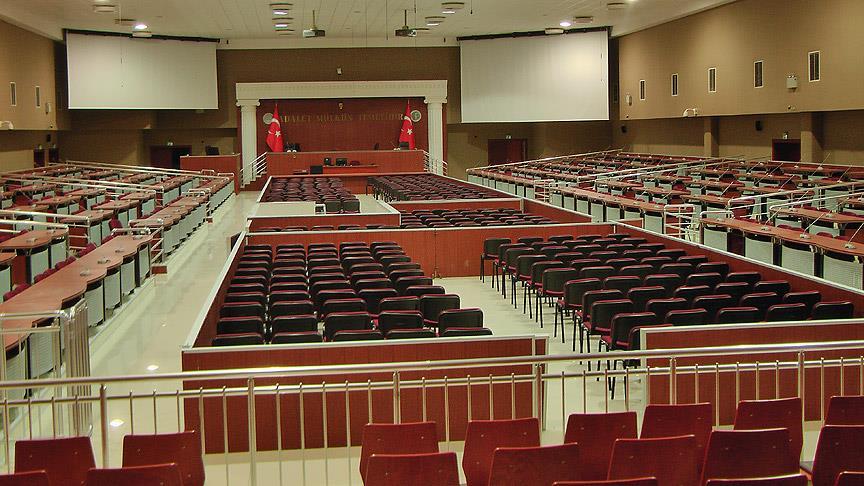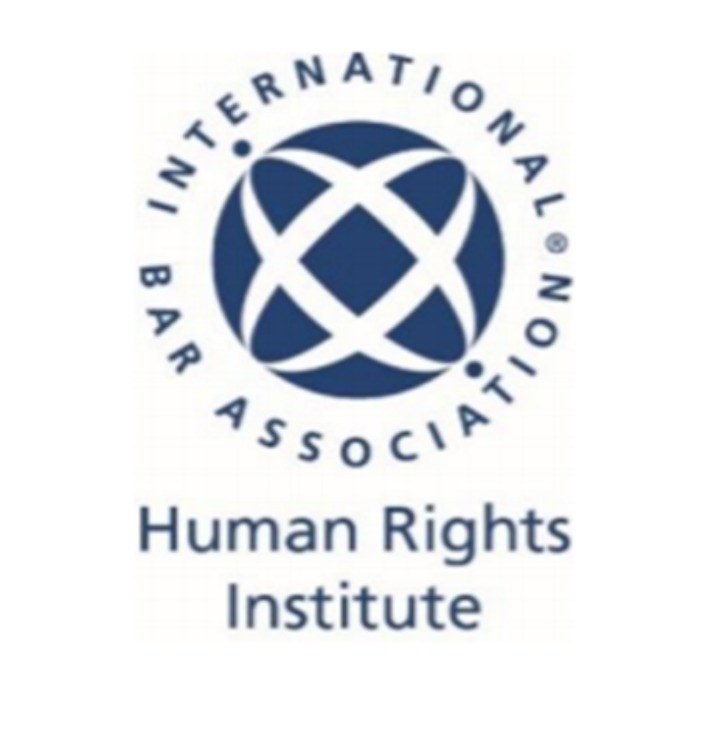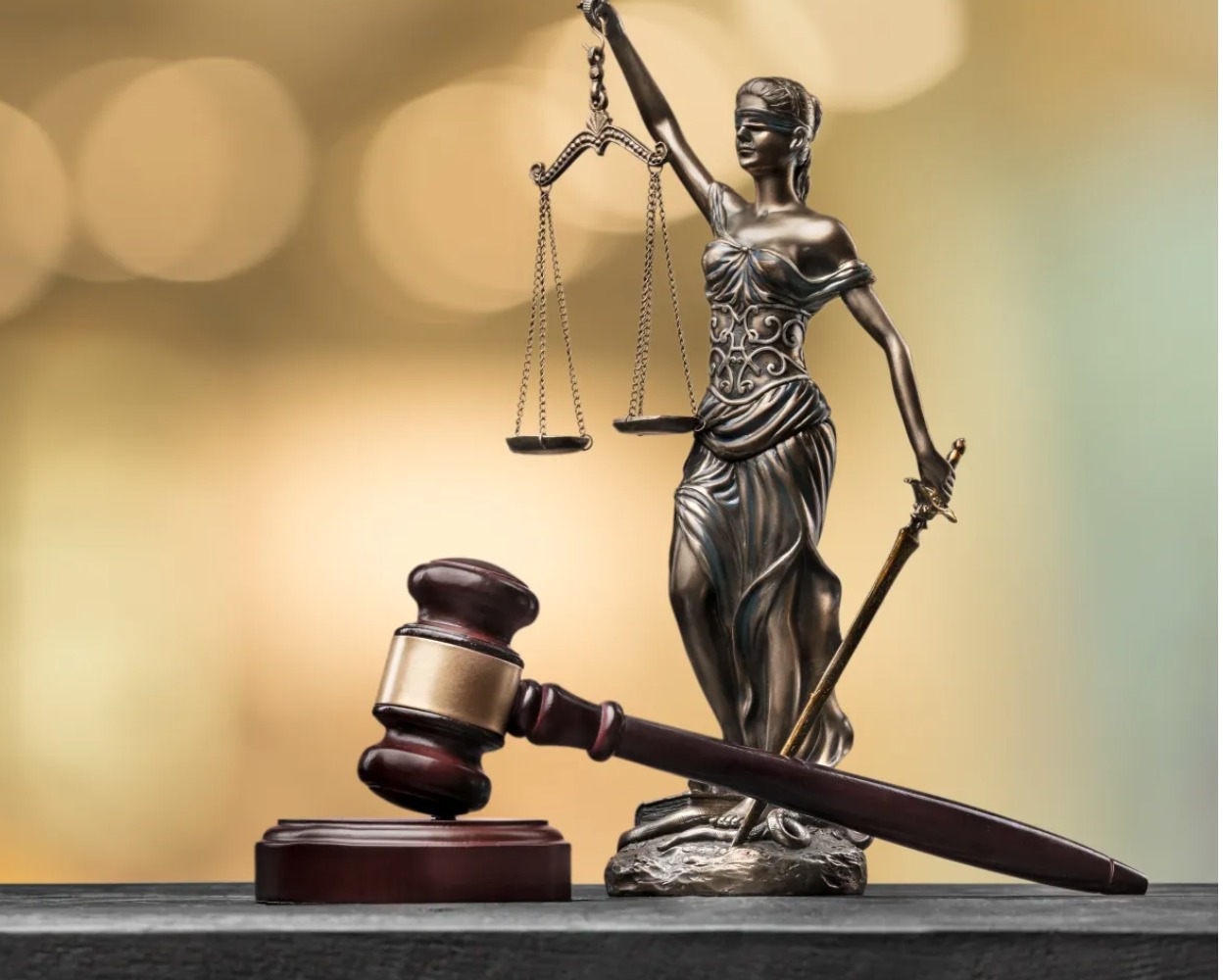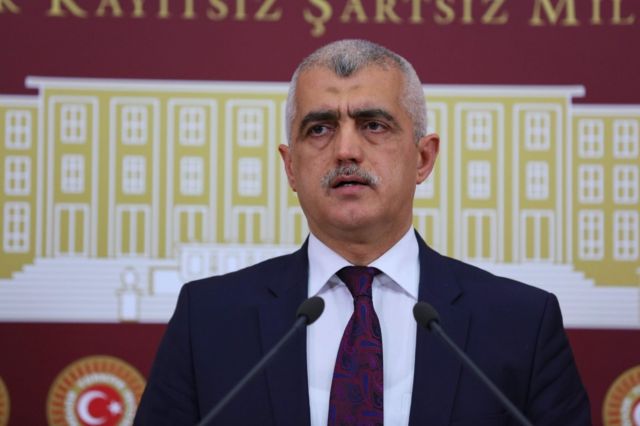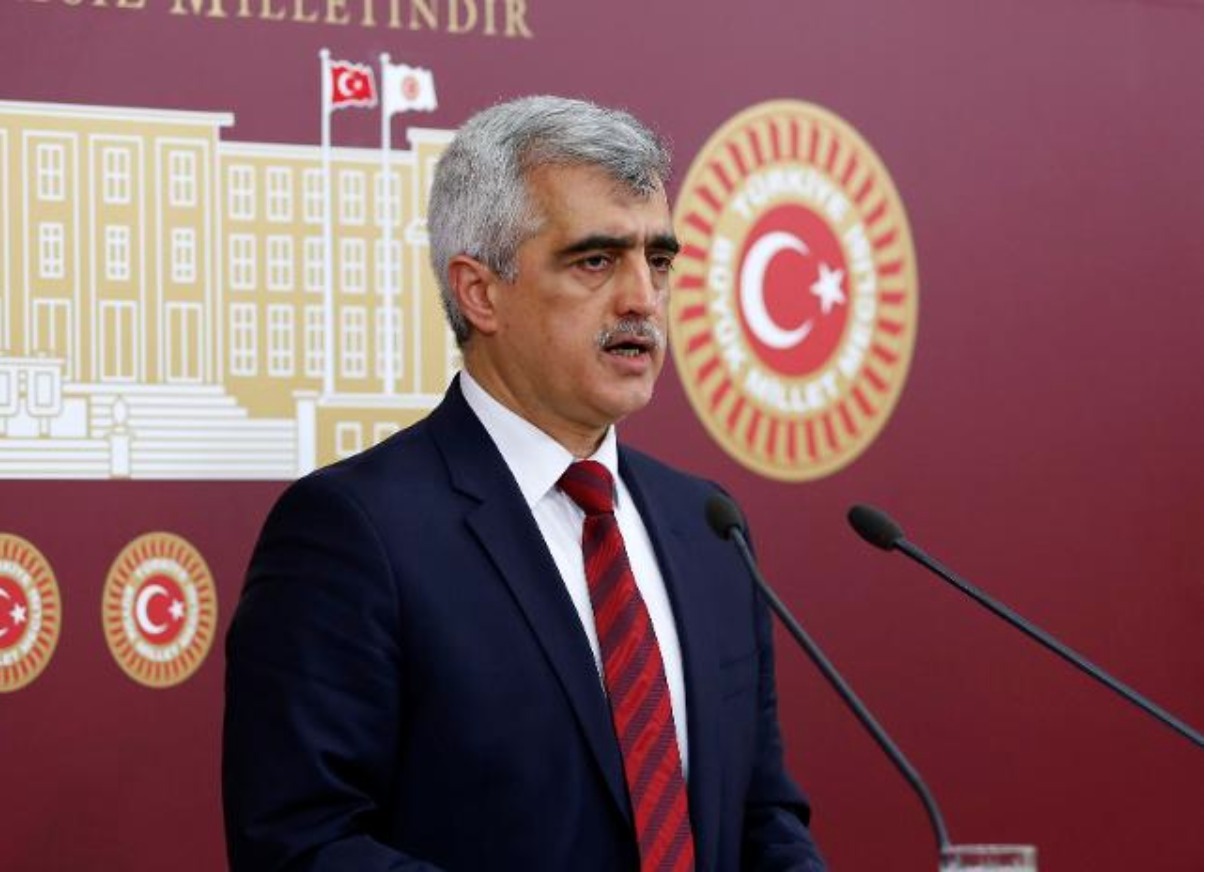Mr. Adnan Oktar, aka Harun Yahya, is a worldly renowned Turkish author who has penned more than 300 books, translated into 73 languages. He was appearing daily on his TV show on A9 television, reaching millions in Europe and the Middle East through satellite broadcasts in Turkish and simultaneously in other languages. He advocates human rights, the superiority of democracy, freedom of speech and faith. He advises women to be active in social life, and supports them in their free choices as to their clothing and lifestyle. He, as a Muslim, has hosted prominent figures of Christian and Jewish faith in his live TV show, where he intellectually struggled against anti-Semitism in the Islamic world.
As a matter of fact, Mr. Oktar’s and his friends’ devout but also libertarian, modern stance, the way they advocate freedom of thought and faith, that they defend the rights of the secular segment too, that they make friends with the members of other faiths have in time drawn reaction from orthodox groups who have a profound influence on politicians in Turkey. Disapproving the stance of Mr. Oktar and his friends, this orthodox group initiated a black propaganda to halt Mr. Oktar’s works and stop his A9 TV broadcasts. Consequently, in order to put this into play, some adverse parties set up a plot against Mr. Oktar and his friends, and a police raid came along on July 11, 2018.
Through this scheme, Adnan Oktar and 200 of his friends, men and women who have no past convictions, and are university graduates from respectable families, were collected from their homes in totality, kept in police custody for eight days under very harsh circumstances and then sent to prison.This court case has been underway for 2 years in Turkey, with a number of violations of international human rights and the Turkish Constitution.
This is a very unique case with 226 defendants, 167 of whom were detained for a term of 17 months until December 2019, when 91 of the defendants (including 3 lawyers), and 4 more in February 2020, were released by the court, which ruled to execute judicial control measures of an “international travel ban” and “ban to leave the house” (house arrest) for all. 78 defendants, including Adnan Oktar, are still in Silivri High-Security Prison, Istanbul.
As an obligatory measure, the Turkish Constitution instructs the inquiry or investigation of a lawyer to be initiated only with the permission of the Ministry of Justice. However, in the case in question, no legal warrants were issued for the lawyers, and despite the opposition made through legal means, these 5 lawyers were arrested (and 2 were released on parole). Some of these lawyers were detained during their legal assistance to their clients.
Presumption of innocence is a universal principle; one is considered innocent unless proven guilty. Accordingly, Turkish law forbids portraying a suspect as a convict and criminal without due legal process. However, it was on the very first day of custody that the Police Department released a press bulletin naming the suspects as the ‘Adnan Oktar Criminal Organization.’ There were many allegations, including sexual harassment and spying for Israel without any single solid evidence, but merely slanderous rumors, groundless accusations by a number of plaintiffs. The conferences held to enhance Turkish-Israeli friendship were portrayed as so-called evidence for claims of espionage. Some Turkish media outlets were provided with libelous stories from within the police headquarters, and baseless allegations and defamation were published as if they were facts. Meanwhile, Adnan Oktar and his friends were being held in police custody under psychological and physical duress.
After being held in custody for 8 days, still no concrete evidence was documented, yet almost all of those in custody were arrested by the criminal court of peace. Surprisingly, the statement made by the court was full of hateful language rather than an objective judicial approach seeking justice and truth. The term ‘criminal organization’ was repeated 51 times, while such demonizing phrases as ‘pervert’, ‘degenerate’ and ‘abuser of religion’ were also used. Apparently, this language is far beyond legal terminology, and enough to express the prejudice.
All of the defendants’ properties, including residences, companies and bank accounts, have been blocked out with confiscation requests. One of our friend’s home was demolished with the decision of the municipality, while household goods and personal items were ruined relentlessly. Even the private items of women were exhibited to the press under the supervision of the police. These practices are one of the first in the history of the Turkish Republic.
The trials began on September 17, 2019, 15 months after the police operation. In violation of the ‘natural judge’ principle, a panel of judges was appointed especially and only for the trial of Adnan Oktar and his friends’ case and Osman Kavala/Gezi Park case. Now that the Gezi Park case is over, the specially appointed panel’s only duty is to try Adnan Oktar and his friends. Such, in which ECHR article 14 and Universal Declaration of Human Rights article 7 ‘Prohibition of discrimination’ are violated, has been seen only in a few political cases in history.
Astonishingly the rights of the defendants are limited with great pressure over the defense lawyers. Many laws are breached despite the warnings of the lawyers while their microphones are turned off. All the demands by the defense are disregarded and denied. On one occasion, when a defense lawyer criticized the public prosecutor and reflected his worries about the violations of law, the judge asked him to be expelled and instructed the gendarmerie to escort him out of the courtroom.
Even though the constitution and laws are secular, the proceedings of the court are not. Questions on religious faith and practices are directed to the defendants, such as “do you serve your prayers?”, “how many times do you pray daily?”, “do you believe in Mahdi?”, “do you drink alcohol?”, etc. Questions regarding the confidential relationships between spouses, whether they live together or not, are directed. Women who attended the TV shows are questioned about their décolleté dresses they wore or why they danced on the shows. Such an interrogation conflicts with the right of privacy and casts doubts on impartiality. It is obvious that this is not a criminal case in reality, but a political case set up as a scheme beyond any legal approach, judging religious views, personal choices, and lifestyles.
The defendants are reputable citizens, being doctors, engineers, academicians, businessmen and businesswomen, with no criminal records whatsoever. Any means of judicial control measures for the imprisoned defendants have been repeatedly and systematically refused despite the prolonged-term of detention. As of December 2019 and February 2020, 91 and 4 more of the defendants respectively have been released and put under house arrest. According to the Turkish Criminal Code Article 220, even if they were found guilty of membership in a criminal organization, the criminal sentence would have been considered to be already executed for them because of the time they have already spent in detention. In other words, they would be rightly released and would be able to use their fundamental rights and liberties at home and abroad. Since the maximum amount of time allowed by the law was over, they were released from jail but now they were confined to their residences in a similarly restrictive manner, and have been so for 7 months now. Without question, within the frame of ECHR Article 5 and ECHR Protocol No. 4, Article 2, this decision of house arrest clearly violates the “Right to Liberty and Security.” The decision of the court violates the following imperative provisions;
“Right to Receive a Justified Decision” (Turkish Constitution article 36/1, 141/3);
“The Principle of Proportionality” (Turkish Constitution article 13);
ECHR, “Right to a Fair Trial” (ECHR article 6/1);
“Right to Liberty and Security” (ECHR article. 5);
“Freedom of Movement” (ECHR Protocol No. 4, article 2);
“Written Motives Required at Decisions” (CMK article 34/1)
And is therefore unjustifiable, arbitrary, unmeasured and unlawful. (For more information, please visit https://adnanoktarlawsuit.com/2020/07/02/adnan-oktar-and-his-friends-case-developments-in-the-trials-on-13-december-2019-and-13-jan-2020/)
The remaining 78 defendants are still being kept in prison under harsh conditions, with restricted access to their lawyers and to health care.
In Turkish criminal law, the maximum period of detention for the allegation of being a member of an armed criminal organization has already been completed as of January 2020. There are some defendants who are charged only with this allegation and are still detained, yet the court still rules that their detention would continue, with the mere reasoning that “the alleged crime may change against them”. Please note that the investigation started in 2016 and these defendants have been detained for 2 years now (6 months longer than the legally allowed time).
One of the most worrisome aspects of the case is how suspects have been forced to accept the false allegations. The treatment of a female defendant in particular, by law enforcement officials is of serious concern: Merve Bozyigit, who had previously wanted to benefit from the effective remorse law, was heard and interrogated on March 9, 2020. She withdrew her previous testimony, which she had given in October 2018 at the police station, and explained before the court that she had been harassed and subjected to psychological violence by the police during her interrogation, that she had been forced to plead guilty, that the only way out presented to her was to accept all the allegations. She said that even though she had insistently denied the accusations, the police officers had kept on forcing her to cooperate and accept the accusations, that she had been frightened and had eventually conceded to do what the officers wanted. Surprisingly, the court disregarded what she had experienced at the police station and, after hearing one of the police officers in question, issued an arrest warrant in absentia for Merve Bozyigit. (For more information, please visit https://adnanoktarlawsuit.com/2020/07/02/arrest-warrant-for-merve-bozyigit-who-withdrew-her-previous-testimony/)
TMSF (Saving Deposit Insurance Fund, which took over the Global Yayıncılık publishing house after the police operation and appointed trustee to the company) demanded that the books authored by Adnan Oktar and legally labeled and published by Global Yayıncılık with the approval of the Ministry of Culture, be sold as junk, because they supposedly have the aim of “organizational propaganda”. On 10 February 2020, the Court decreed, in violation of procedures and provisions commanded by the law, that “commercial activities of the company are under the authority of the board of trustees”. This court ruling is against the Turkish Code of Criminal Procedure (CMK) and jurisdiction’s ethics code. It should be noted that considering the books published by Global Yayıncılık as organizational propaganda tools is erroneous because the public prosecution lodged against the defendants is still ongoing. Therefore, defining the defendants as “a criminal organization” at this stage and describing the books published by Global Yayıncılık as organizational propaganda tools is legally impossible. The board of trustees did not specify which passages of the books were problematic. Therefore, destroying books despite the lack of illegal content interferes with the rights under Article 10 ECHR (freedom of expression). Destruction of books with texts from the three Abrahamic religions is against the sacred values of these religions and is a violation of Article 9 ECHR (freedom of thought, conscience and religion). The court’s ruling is not lawful in terms of procedures as well, since it is improperly made by only one member of the panel of judges, and without taking the opinion of the public prosecutor.(For more information, please visit https://adnanoktarlawsuit.com/2020/07/02/the-motion-to-destroy-books-of-global-publishing-is-inaccurate-and-unlawful/)
Some hearings have been pursued without the presence of the defendants at the courtroom, which is another violation of the lawful rights of the defendants. The decision of the court to exclude the defendants from the courtroom during the interrogation and hearing of those defendants who wanted to benefit from the effective remorse law is unjustifiable and is a violation of ECHR Article 6, the principle of equality of arms, and the right to a fair trial. (For more information, please visit https://adnanoktarlawsuit.com/2020/07/02/excluding-defendants-from-the-courtroomviolates-the-defendants-right-to-a-fair-trial/)
Between mid-March and mid-June, all judiciary proceedings in Turkey were suspended as part of the measures against COVID-19. The new session of hearings started on June 23, 2020, and required the attendance of the defendants. Considering that the threat of COVID-19 persists, we had explained the danger to the Court, demanding the postponement of the hearings until a safer time. However, it was not accepted, and the defendants were brought to the courtroom on June 23. The defense attorney requested for the same consideration, yet the court again refused to postpone the trials, but, as an alternative, ruled that those who have already been interrogated would be excused from attending the trials. But as the trials keep going, this is certainly not an acceptable option, so the defendants have been “forced” to choose to attend the trials and risk their lives.
With the detainees being brought to the courthouse, additional difficulties and hardships are created for them, who have already been suffering in prison for a long time. Since the area reserved for detainees in the courtroom is not large enough, they are seated in such a way that social distancing cannot be maintained. During breaks between sessions they are held in cells that do not have any air circulation. There isn’t any soap, toilet paper for the toilets, and there is even water cut. The only health check on their return journey to the prison is to measure their temperature. In fact, even this was not done the first day; they were only asked if they felt alright! The second day, they were taken to the hospital to be checked for fever and kept waiting there for about two hours. Since they start the day early in the morning and return to their wards late, they do not have the time to rest and get enough sleep, which may weaken their health even more.
On June 23 and 24, nine defendants who had not been interrogated yet were interrogated by the court. Some of them have been detained for some time now and the court’s reasoning for their continued detention was that they had not yet been interrogated. Now that they have been interrogated and considering that even if they were found guilty, the criminal sentence would have been considered to be already executed because of the time they have been detained, defense attorneys demanded their release. However, the court refused it, stating that this will be evaluated in the next review of detention.
An attorney of the complainants demanded the arrest of one of the defendants before the court, citing some information allegedly found in digital resources. In response, a defense attorney referred to a decision of the Turkish Supreme Court of Appeals (Penal Department No. 16 of the Supreme Court, decision dated 21.09.2017 and numbered 2015/2056 E., 2017/5023 K.), and stated that “it was against article 134 of CMK (Turkish Code of Criminal Procedure) to seize any digital media found during the search of a suspect’s residence or workplace without creating an image copy of it at the search site and giving a copy of it to the individual concerned, and to base the judicial judgment upon any evidence obtained in such manner since its compliance with laws would be debatable.” She was not arrested but it needs to be noted that the digital resources, none of which was duly seized, along with the abstract declarations of the complainants, are basically the only evidence in the case file, and despite the fact that the defense attorneys have stated time and again that the defendants should not be questioned about them, the court refuses this motion.
On June 25 and 26, two defendants (one of whom has been detained for three months) who had applied to benefit from the law on effective remorse were interrogated. The Prosecutor wanted them to be heard without the other defendants and audience members being in the courtroom, and they were heard so. They entered a guilty plea and that person was released by the court. The double standards are quite apparent and striking since none of the accused who applied to benefit from the effective remorse provisions are held in detention (they are either not arrested in the first place or released after they apply to benefit from the effective remorse law), while all the other defendants accused of the same charges are kept detained. In this decision the court’s bias can clearly be understood also because one day earlier, the court had refused to review the detention of the other defendants, but ruled to release this particular defendant right away.
On July 2, a review of detention was made about the case, without the attendance of the defendants, and none of the defendants, including those mentioned above, were released.
The latest session of hearings started on July 6. In this session, defense attorneys are recognized, and they address the Court about the criminal charges against their clients, and present a defense.



